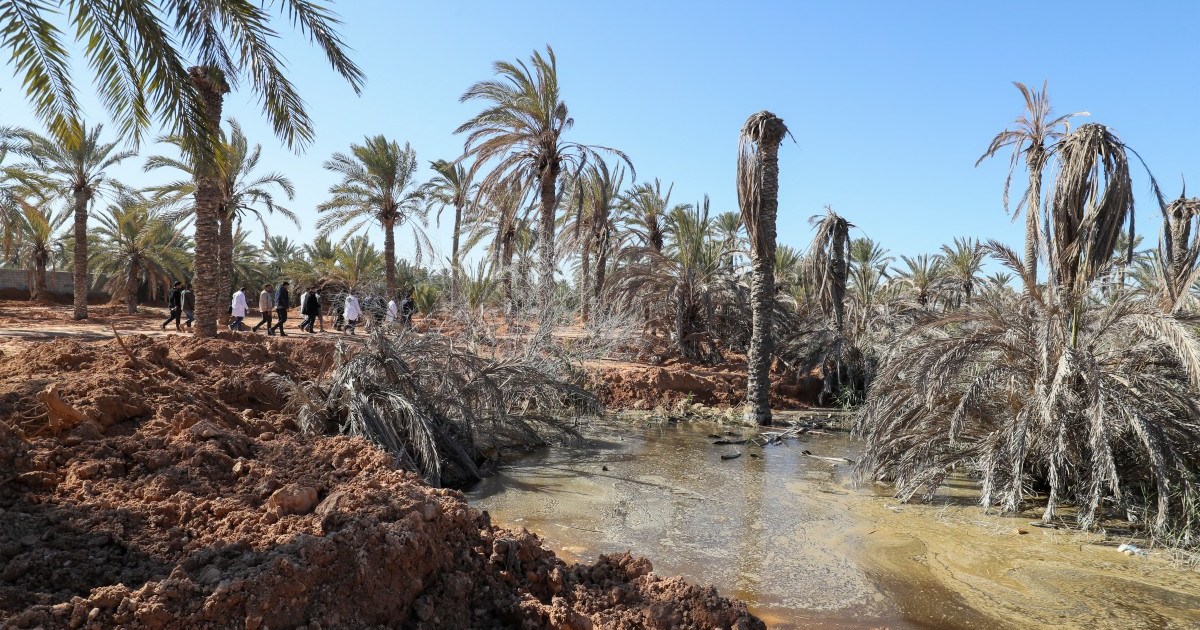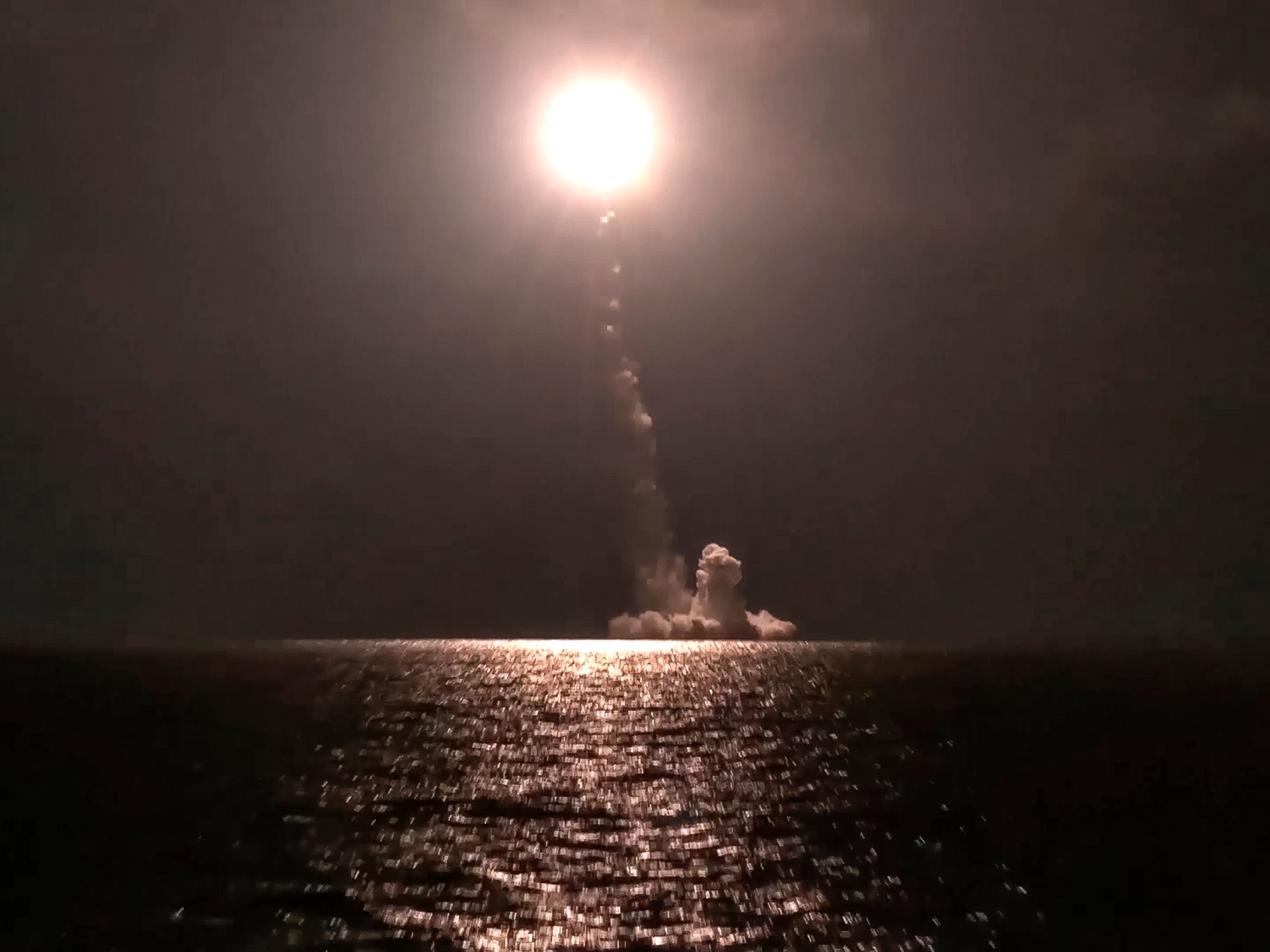
Much of Libya is bone-dry desert, but a Mediterranean coastal town is suffering from the opposite problem: its homes and fields have been inundated by a mysterious rise in groundwater.
Standing water and slushy mud have flooded homes, streets and palm groves around the northwestern town of Zliten, spreading a foul smell and creating breeding grounds for mosquitoes.
Many residents have fled their homes whose walls were cracked or collapsed, fearing a worsening environmental crisis in the area about 160 km (100 miles) east of the capital Tripoli.
“Water started leaking two months ago and it is still rising and flooding our wells,” said Mohamad Ali Dioub, owner of a farm about 4 km (2.5 miles) from Zliten. “All my fruit trees – apple, apricot and pomegranate trees – are dead.”
The 60-year-old said he hired water trucks to pump out the standing water and bought lots of sand to dump on the soggy ground to save some of his prized date palms.
The area’s normally sandy and light soil was “muddy, black and smells bad,” said Mohamad al-Nouari, another farmer whose land was completely submerged.
Nearly 50 families have been relocated, said Moftah Hamadi, the mayor of Zliten, a city of 350,000 known for its Sufi shrines, Al-Asmariya University and palm and olive groves.
Prime Minister Abdul Hamid Dbeibah vowed this month to “resolve this crisis in a scientific and rapid manner” and called on authorities to compensate or relocate displaced families.
However, there is still no consensus on what caused the floods.
Libya has been plagued by conflict and unrest since the fall of Muammar Gaddafi’s regime in 2011 and is now ruled by two rival governments based in Tripoli and Benghazi.
Catastrophic flooding devastated the city of Derna in eastern Libya in September when two dams collapsed. According to the United Nations, more than 4,300 people died in the gigantic tsunami and more than 8,000 were missing.
Locals in Zliten say groundwater flooding is nothing new, pointing to reed-covered areas due to years of flooding. But they also say that the phenomenon has now affected them to a previously unknown extent. Media reports have pointed to a variety of possible causes, from poor drainage infrastructure to damaged pipelines and heavy winter rains.
Foreign specialists, including from Britain, Egypt and Greece, have traveled to Zliten in the hope of identifying the origin of the problem and finding solutions.
Elsewhere in the world, rising sea levels have been linked to rises in coastal groundwater, as dense salt water can penetrate deep into the ground and push up lighter fresh water.
Libyan authorities, meanwhile, have denied any connection between the floods and the so-called “Great Man-made River,” a vast Gaddafi-era pipe network that channels water from an aquifer deep beneath the southern desert to irrigate coastal agricultural areas.
The project’s management company, as well as the country’s main water and energy suppliers, have all made concerted efforts to ease the city’s ordeal. The country’s National Center for Disease Control has deployed emergency teams, equipment and pesticides to eradicate the mosquito swarms.






Recent Comments